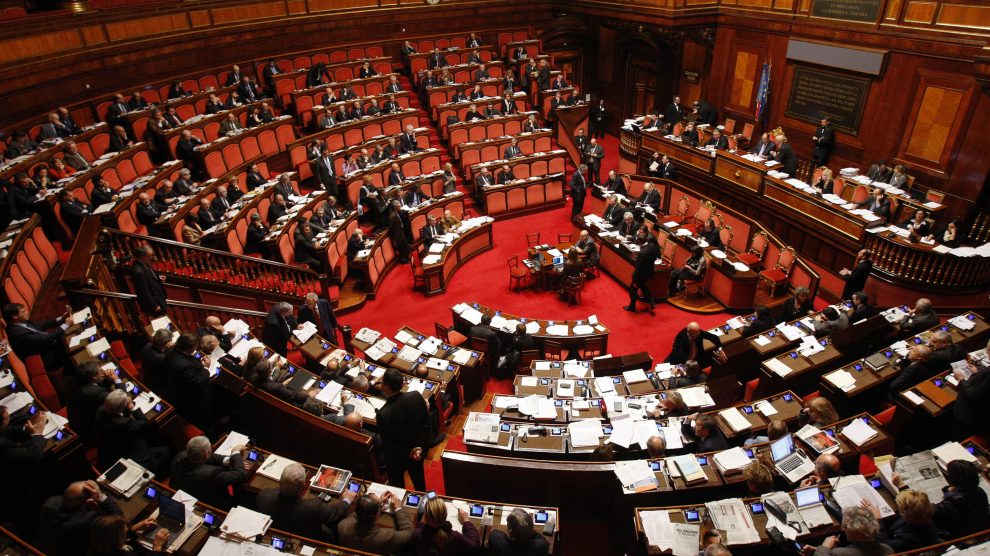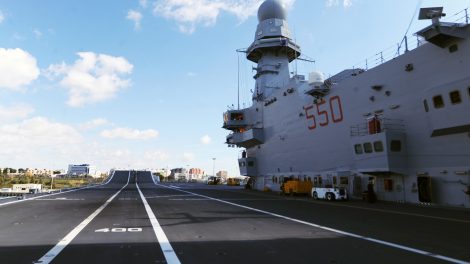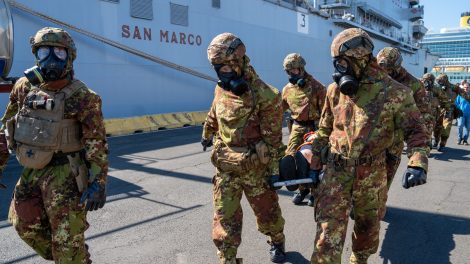Two tracks – deterrence and dialogue – and one strategy. Italy is taking a stand on the Ukrainian crisis. It did so through the joint hearing of Defence Minister Lorenzo Guerini and Foreign Minister Luigi Di Maio before the Defence and Foreign Affairs Committees of the Italian Parliament.
The officials confirmed the Italian government’s double-track approach, which does not rhyme with duplicity. “Since 2014, Italy has never stopped defending and supporting Ukraine’s territorial integrity and full sovereignty,” began Mr Di Maio. “Firmness and loyalty are fixed points in the action we are conducting together with our Western partners and allies.”
The fixed points include “support for the Minsk agreements, the compliance of which is linked to EU sanctions” and the “contribution to dialogue and confrontation between Russia and Ukraine with NATO and OSCE” along with the “enhancement of the EU’s role in the crisis.”
“We must insist on dialogue but also send an unequivocal message, with determination,” continued Mr Guerini: “any aggression against Kyiv would have serious consequences. The transatlantic relationship is the cornerstone of security and peace in Europe; those who try to divide us will be disappointed.”
The declaration amounts to a message to NATO and the White House: Rome is not divided over the Ukrainian escalation. The official’s hearing finally provided a clear-cut clarification after weeks of silence and subdued stances taken by government members and Prime Minister Mario Draghi, which some international observers deemed insufficient to clarify Italy’s role in this crisis.
More than 100,000 Russian soldiers in combat fatigues are still deployed a few kilometres from the Ukrainian border, while Allied Resolve 2022, the joint military exercise between Minsk and Moscow, is about to begin in Belarus.
Still, the White House no longer classifies a Russian invasion as imminent. This is due to the ongoing negotiations – which, albeit with difficulty, are continuing with newfound European protagonism. Especially that of French President Emmanuel Macron and German Chancellor Olaf Scholz, both of whom just returned from a diplomatic mission, the former to Moscow with Putin, the latter to Washington with Biden.
FM Di Maio assured MPs that Italy is fully aligned with NATO. Thus, he deems two of the Kremlin’s requests to be inadmissible, namely “the return to spheres of influence and NATO” renunciation of the open door policy.” The Atlantic Alliance cannot sign blank cheques on European security with Moscow, he said, nor officially close the door on Ukraine. At any rate, he pointed out that Kyiv’s possible entry is nowhere near and would eventually require a long path of constitutional reforms.
There were two salient points in the Foreign Minister’s speech. Firstly, Italy wants to return to being a European foreign policy protagonist in the Quint format (together with the United States, the United Kingdom, France and Germany). This drive has been recently announced on Decode39 by Undersecretary for Foreign Affairs Benedetto Della Vedova.
Secondly, Italy considers Nord Stream II – Gazprom’s gas pipeline between Russia and Germany – an instrument that “objectively weakens Kyiv” and shares Ukraine’s fear that it “can be bypassed” by the Russian government when it comes to gas transit.
This is a clear stance on a divisive issue over which President Biden and Chancellor Scholz do not fully agree and which closely concerns a crisis – the high cost of energy bills – that is stirring up Italian politics.
The duo also discussed Italy’s wish to relaunch “high-level” dialogue between Russia and the EU. The proposal does not find everyone in agreement: these summits have been suspended since 2014, since Russia invaded Crimea, and last June France and Germany’s attempt to reinstate them was blocked by Eastern European and Baltic countries.
Defence Minister Guerini outlined the NATO operations where Italy is involved. Such as the southern flank, seen as a priority, with ships in the Mediterranean and the Cavour aircraft carrier engaged in the Neptune Strike exercise. That front recently warmed up when Black Sea-bound Russian ships sailed a few kilometres off the Italian coast.
Italy is also in the east, in Latvia – which Mr Guerini will be visiting in the coming days – with “a battalion of Alpine troops” and in Romania “with an air-policing task force.” And Mr Di Maio also underscored the “hybrid operations” that Russia could launch instead of a military manoeuvre – although all scenarios are considered, “from an invasion of its own to scenarios of a hybrid nature.”
The Italian parties are generally united over the Ukrainian crisis, albeit with some differences. The League and Brothers of Italy, with Paolo Formentini and Andrea Delmastro, underscored the collateral effects of European sanctions on the Italian economy, while Vito Petrocelli, from the Five Star Movement, stressed the Russian concerns in the negotiations. Perhaps more clear-cut is the Democratic Party’s secretary, Enrico Letta: “there isn’t much room for distinctions; this is the moment for unity and firmness towards Moscow.”




